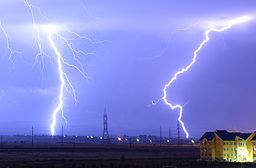 Definitions of atheism vary, but most of us who use the label to describe ourselves would agree that an atheist is someone who lacks belief in gods. For some, this involves the belief that gods almost certainly do not exist (i.e., "strong atheism"). But for most of us, this level of certainty is not necessary. Our position is that we have not yet been presented with sufficient evidence to support a belief in gods. If that were to change, we'd modify our position on the question of gods.
Definitions of atheism vary, but most of us who use the label to describe ourselves would agree that an atheist is someone who lacks belief in gods. For some, this involves the belief that gods almost certainly do not exist (i.e., "strong atheism"). But for most of us, this level of certainty is not necessary. Our position is that we have not yet been presented with sufficient evidence to support a belief in gods. If that were to change, we'd modify our position on the question of gods.Admittedly, some people use atheism to refer to all sorts of things that extend well beyond its definition. A common example includes the rejection of anything supernatural (i.e., angels, demons, ghosts, miracles, etc.). This more expansive meaning is probably better described as "naturalism," "materialism," or a related term, but this can be debated another time. My focus for this post is whether atheism is really where most of us are (or should be).
Suppose for a minute that there is at least one god out there in the universe somewhere. Also suppose that this particular god bears no resemblance whatsoever to the god in which Christians, Jews, and Muslims claim to believe. This god is an inexplicable force of energy, moving through the vast universe at random. This god does not have anything similar to human intellect, purpose, intent, or emotion. This god is more of a force in the way that gravity is a force (i.e., intent/mind/personality are irrelevant). This god set creation in motion (e.g., big bang, etc.) and then moved on to the next galaxy in a random fashion. This god set the process in motion but has nothing at all to do with the created life forms. This god never communicated with Jesus, Abraham, Mohammad, or anyone else on our planet. Lacking consciousness, awareness, and purpose, this god is no more aware of us than sunshine is aware of us. As I understand it, this is the sort of god in which some deists believe.
Could you accept the possibility that this sort of god might exist? Regardless of whether you believe that such a force is necessary or even plausible, could you accept the possibility? If you answer "yes," is it still accurate to call yourself an atheist?
I think so. You might not be a "strong atheist" or a "gnostic atheist," but you could still be an atheist and accept the possibility that such a god might exist. Your position would be that you aren't planning to believe in such a god until you had sufficient evidence to do so. You would recognize that a theist insisting that there was such a god would have to meet his or her burden of proof. This is atheism.
Personally, I would have a much easier time accepting the possibility of this sort of deistic god than the Christian god with all the absurd dogma attached. Perhaps it isn't the idea of gods per se that I find so disturbing; it is the idea of the Christian/Jewish/Muslim sort of god which I find both absurd and destructive.
Of course, the true absurdity may simply be linguistic. Why bother to call this random energy force "god" at all? Maybe this explains why many people can accept spirituality while rejecting religion. In any case, I don't believe that the notion of a deistic god is necessary or particularly helpful.
An earlier version of this post was written in 2005. It was updated in 2018 to fix broken links and improve clarity.